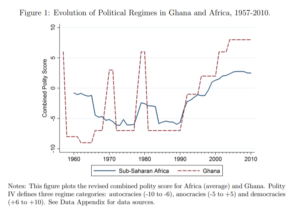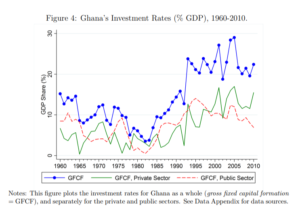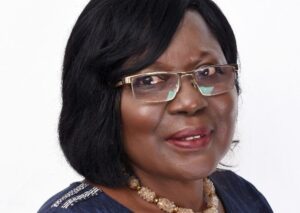“At long last, the battle has ended! And thus Ghana, your beloved country is free forever.”
And with those – some of the most iconic words ever spoken – our nation was heralded into a new chapter; one with the great promise of shared prosperity as the nation formerly known as the Gold Coast utilised its great reserves of human and natural resources to full capacity and transitioning from a modern-day El Dorado to the envisioned socio-economic utopia.
This would be done, bringing the rest of the continent along. It is no stretch to say that “political progression in Ghana has often been an indicator of upcoming events in the rest of the continent.” In 1957, a year after Ghana gained independence, her neigbours to the west, Guinea, attained the same. By 1960, 16 nations south of the Sahara had become fully autonomous, sovereign states.

Developments in the immediately ensuing years, it is documented, ensured that the hopes held by the approximately 6.7 million people – according to the 1960 census – were kept alive.
As one of the most developed Sub-Saharan African non-island countries, flush with cash from the boom in cocoa production in the 1930s (Jedwab & Darko, 2012), Kwame Nkrumah embarked on a rapid industrialisation campaign (Ibid), with a heavy import substitution bend, one which economic advisor at the time, Arthur Lewis considered being rushed (Ibid).
By 1966, some 53 state enterprises and 12 public boards (Agyeman-Duah 2008, cf Jedwab & Darko, 2012). Consequently, government consumption also increased, as the number of publicly-paid employees increased from 140,000 in 1957 to about 280,000 in 1965.
Barely a decade after independence, the nation would see military coups and civilian governments play a morbid game of musical chairs over the next two and half decades, with scarcely any clear-cut and consistent economic philosophy in place.
The seemingly pro-business approach by most civilian governments was sharply contrasted by the austere measures the military interventionists sought to implement. In the end, the nation’s economic policy has looked like the illegitimate offspring of poor capitalism and exploitative socialism, all the while pandering to an electorate increasingly divided along political party lines, which were nothing short of banners for ethnoreligious affiliations.
Unfortunately, these happening were not unique to Ghana alone, as has been the case, they were precursors to what would happen across the continent.

With a continuous overreliance on agriculture, limited production, rising fiscal deficits, and the debt that comes with it, it might appear that Ghana’s independence has yielded little.
But is it all doom and gloom? What does independence really mean? Has independence failed to live up to its promise? What can be done to ensure mistakes are not repeated in the coming decades and gains made so far are consolidated? Whilst there is some broad consensus on these questions, they are nuanced across age groups. Below, the B&FT seeks responses from four Ghanaian business leaders from multiple sectors to the aforementioned questions.
Leticia Osafo Addo, Samba Foods

Born in the 1950s, in the years immediately preceding independence, Leticia Osafo Addo – whose food processing company, Samba Foods was the first to list on the SME-focused Ghana Alternative Exchange (GAX) – remembers the palpable hope and excitement which characterised the first few years after independence.
According to her, there was much optimism for a structural transformation from a primarily agrarian society to a more industrialised one – a development that began but was truncated for a host of reasons.
“The first 10 years saw the foundation set for an industrialized nation… Over the 65 years, however, we have remained relatively poor, relying largely on rudimentary agriculture, other natural resources, and taxation as our primary sources of income coupled with low levels of industrialisation… This does not depict a prosperous nation, especially when we look at our peers in the Far East, who attained independence around the same time,” she explained.
Citing “poorly thought through and planned policies” as the primary reason for the state of affairs, she said the remedy lies in “a crystal-clear framework that will define the kind of developmental agenda that we want to set for ourselves. As a country, we need to identify the kind of platform that we want to use. Do we want to trade and embark on commerce like the the United Arab Emirates (UAE)? Or manufacturing like the Eastern Tigers? We have mixed the pillars of development and are unable to master any,” she added.
On the occasion that is Ghana at 65, she added, “I would like to wish everybody a happy anniversary but there must be some fundamental changes, we do not need to reinvent the wheel but look at what others have done and apply the principles to our circumstances.”
Kenneth Kwamina Thompson, Dalex Finance

For Kenneth Kwamina Thompson, Chief Executive Officer of Dalex Finance and a product of the 1960s, inasmuch as there have been significant hiccups post-independence, the principle meaning and goal of independence – the right and ability to shape one’s fortunes – has not changed. “Independence means that as Ghanaians, we have the opportunity to shape our destiny in a way that benefits the majority of Ghanaians. The meaning has not changed. Our destiny is in our hands,” he said.
With this in mind, he argued that the nation is well and truly independent and that recent and present challenges have not altered this reality or taken the ability and responsibility of all Ghanaians to move the country to “attain its full potential.”
He suggested that the prevailing culture – which discourages accountability and promotes flagrant impunity – must be changed if the nation is to achieve its post-independence targets. “A culture where people are held accountable for their actions will spearhead the level of development that we all desire to see,” the financier stated.
As Ghana turns 65, he called for renewed optimism, saying, “One person can make a difference. Keep hope alive and never give up!”
Richard Nunekpeku, Sustineri Attorneys PRUC

Independence represents the ability to dream, work and achieve those dreams in our homeland, that is according to Lawyer and serial entrepreneur, Richard Nunekpeku, who was born and raised in the tumultuous 1980s. He noted that true independence transcends mere political independence – where we have the power to elect our leaders.
“We expect leadership that uses the influence of political power to either solve our social, cultural, religious, economic, educational and all other challenges or create the opportunity for us as young people to work in solving these challenges,” he said.
He reasoned that the nation has been unable to fulfill its potential primarily because it has failed to appreciate the scope of what it is capable of.
“That failure makes it difficult to assess how much of it has been achieved in our 65 years of independence. If you compare the significant contributions of Ghanaians to the development of other countries, you may begin to appreciate the difference we should have made by now to our own country as Ghanaians. The Ghanaian thinks, the Ghanaian works. But structurally, the design of our socio-economic systems, our attitudes, and leadership at home are incredibly at variance with how we perform elsewhere,” he explained.
He added that since no nation practices entire autarky – the economic system of self-sufficiency and limited trade – a proper understanding of interdependence is necessary for independence, adding that a sense of unity must be fostered among Ghanaians.
“Just like there is an ‘American Dream’, I believe the ‘Ghanaian Dream’ is much alive. We need to work closely as one people, with the common purpose to develop our nation. This will demand deliberate efforts to create a more viable and buoyant economy, create opportunities for all and empower our people. We must march once more in recognition of our struggles, in anticipation of a more prosperous and peaceful nation, and in demand for leadership that works for the people,” was his message as Ghana turns 65.
Rhoda Odoi, CEO, HypeNet Digital Marketing

The warm sentiments surrounding Ghana’s independence have been relayed to Rhoda Odoi, CEO at HypeNet Digital Marketing, who arrived more than four three decades after independence. Personally, she said, it has not amounted to much for her.
For her, there is a form of colonialism by proxy as supposedly sovereign states continue to act like vassals; hanging unto the coattails of their former bosses, without which it appears they would barely subsist. “Independence has given us the freedom to rule our affairs but personally, as a businessperson, I cannot see much of it as we are heavily dependent on our one-time colonial masters for much of what we do, from equipment to aid,” she said.
She added that the sense of despair is most felt by younger persons – millennials and after, who have not had a taste of the good old days. “As Ghana turns 65, I would say that we have come far but we need to do more. The Ghanaian should not have to leave the country to prosper. Businesses that thrive should be the rule and not the exception. Those who lead us must create an environment that promotes success,” she remarked.
The message appears to be: Despite modest, albeit scattered gains, there is so much more for Ghana as a sovereign state to do. This will only be achieved if empty promises, playing on the emotional strings of the populace are eschewed for hard, focused, united economic policies. All hands-on deck, then. God bless our homeland Ghana and make our nation great and strong.
References:
- Jedwab, R., & Osei, R.D. (2012). Structural Change in Ghana 1960-2010.
- Ghana Census Office.










